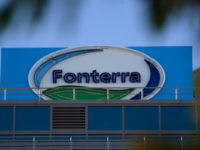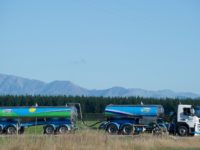 Fonterra Cooperative breached the Dairy Industry Restructuring Act (Dira) by imposing less favourable terms on farmers who previously supplied the failed New Zealand Dairies, the Supreme Court has found.
Fonterra Cooperative breached the Dairy Industry Restructuring Act (Dira) by imposing less favourable terms on farmers who previously supplied the failed New Zealand Dairies, the Supreme Court has found.
In 2015, the High Court ruled Fonterra had breached Dira after buying the independent processor’s plant out of receivership in 2012 and taking on its farmers, who supplied milk from farms in North Otago and South Canterbury.
Fonterra made a deal with the farmers, agreeing to buy their milk under a “growth contract”, rather than a fully share-backed supply.
Under the growth contract, the farmers were entitled to 5 cents less per kilogram of milk solids than the contract milk price and bought 1000 Fonterra shares but couldn’t become fully share-backed in their first year of supplying Fonterra.
Fonterra appealed the ruling to the Court of Appeal, which rejected it in 2016 and this year to the Supreme Court.
It was granted leave to appeal to the highest court on the question of whether the appeal court was correct to find the farmers counted as “new entrants”.
In a majority ruling, the court dismissed the appeal.
Justices Ellen France and Mark O’Regan said the argument made by the farmers’ lawyer David Goddard, QC, that Fonterra penalised the farmers to avoid bad optics with its existing suppliers had “not been shown to be wrong”.
Chief Justice Sian Elias and Justice Susan Glazebrook agreed the farmers counted as new entrants and that Fonterra had breached s106 of Dira.
Justice Elias also said Fonterra hadn’t proven the price it paid for the plant was inflated to cover the money owed by New Zealand Dairies to the farmers, as its lawyers argued.
Dissenting, Justice William Young accepted Fonterra’s argument the farmers were not share-backed suppliers, but instead contract suppliers, and s106 of Dira does not cover contract suppliers.
The farmers’ holding of 1000 shares was “nominal”, Fonterra argued.










